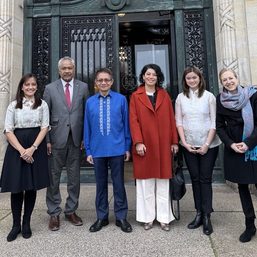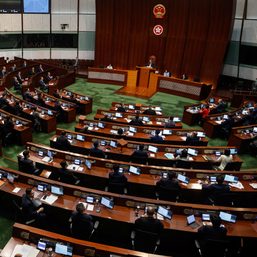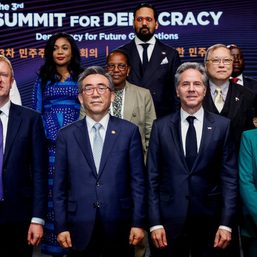SUMMARY
This is AI generated summarization, which may have errors. For context, always refer to the full article.
United Nations human rights chief Michelle Bachelet expressed alarm over the use of landmines in several countries, including the Philippines, citing mounting casualties among ordinary citizens.
The Philippine mission to the UN in Geneva echoed Bachelet’s concern, calling out the New People’s Army (NPA) for its continued use of such weapons, according to a report by the Philippine News Agency on Tuesday, November 24.
Bachelet – who has also strongly condemned human rights abuses by the Duterte government – stressed that no state or non-state actor could justify the use of landmines, which “destroy lives, livelihoods, and rights.”
“Our UN Human Rights Office is particularly concerned about the widespread use of improvised explosive devices that function as anti-personnel landmines,” said Bachelet, the UN high commissioner for human rights.
“These devices present unique challenges for mine clearance efforts and are responsible for rising numbers of civilian casualties in many contexts, including in Afghanistan, Iraq, Syria, Mali, Colombia, and the Philippines, among others,” Bachelet said during a recent meeting of states parties to the Anti-Personnel Land Mine Convention held in Geneva.
Bachelet added, “They are inherently indiscriminate. Their use causes great suffering to civilians, affects livelihoods – often long after the end of a conflict – and is never acceptable.”
The Philippines, a party to the UN Anti-Personnel Land Mine Convention, renewed its commitment to the convention and the implementation of the Oslo Action Plan, that seeks a mine-free world by 2025.
Philippine delegate JJ Domingo said the country had eliminated all its stockpiles of anti-personnel mines in 1998, and continues to immediately dispose of such weapons found during inspections and field operations.
The Philippines likewise called out the Communist Party of the Philippines (CPP) armed wing, the New People’s Army (NPA), which reportedly continues to use command-detonated landmines.
“Its use of improvised explosive devices with anti-personnel characteristics is well-documented, including those with anti-handling devices that trigger explosions upon attempt by explosive ordinance disposal teams to defuse them,” Domingo said, referring to the NPA.
Jose Maria Sison, founding chairman of the CPP, earlier said landmines were “necessary” to deter security forces from encroaching on the “territory of the people’s democratic government” while the armed conflict is ongoing.
”Landmines are a poor man’s weapon. Aerial bombing and artillery fire are weapons of those who oppress the people,” Sison said.
In responding to the use of these weapons, the Philippines pointed the spotlight to programs that have uniformed personnel, communities, and nongovernmental organizations like the Philippine Campaign to Ban Landmines cooperating to prevent the use of landmines.
Under the Duterte administration, the Philippine government has intensified its anti-insurgency campaign in aftermath of failed peace talks with the CPP. Human rights groups and lawyers, however, have urged caution and restraint as the government’s campaign has also led to the red-tagging of groups and individuals.

In Geneva, the Philippines expressed its support for global efforts to address developmental challenges brought about by the use of landmines.
Domingo added, “Equally important for the Philippines is the centrality of mine victims in the Convention’s work on clearance and risk education. The balanced participation of women and men, and all stakeholders, is crucial in this regard.” – Rappler.com
Add a comment
How does this make you feel?
![[Judgment Call] Resisting mob mentality for warrantless arrests](https://www.rappler.com/tachyon/2024/04/judgement-call-mob-mentality.jpg?resize=257%2C257&crop=352px%2C0px%2C720px%2C720px)




There are no comments yet. Add your comment to start the conversation.